Resources
The concept of practice helps us better understand how preaching works, as well as how we can teach that practice more effectively. This essay develops a compact but wide-ranging view of practices, reflecting the current scholarly discussion. It also argues that preaching is a particular instance of this larger concept of practices. Understanding preaching as a practice gives new perspectives on what preaching is and allows us to consider how to employ broadly recognized standards of excellence to evaluate particular instances of students' preaching. Further, this essay explores how the teaching of preaching is a practice in its own right. The value of this insight is that it allows us then to explore how the character of the teaching and the character of what is taught can be consonant with one another, and in ways that can guide. This essay is from "Teaching Preaching as a Christian Practice," edited by Thomas G. Long and Nora Tisdale. Used by permission of Westminster John Knox Press.
One of the primary aims of pastoral leadership education is to offer reflective processes that enable learners to surface, critique, and construct different epistemological conceptions of reality leading to more effective pastoral practice. In many pastoral leadership education programs, this type of intentional reflection usually takes place in a mentoring or supervisory relationship as well as in a reflective seminar. In this essay, I describe how I have used the "immunity-to-change language technology" as one type of reflective process for intentional reflection and transformational learning in pastoral leadership education. The results of my research and ongoing use of this educational tool indicate that it can be valuable for enabling change by helping learners expand their pastoral leadership capacities and become more effective in their practice. Given my findings, I conclude that this educational tool could be of interest to other educators who are seeking to broaden their own repertoire of approaches to transformational learning. A version of this research appears in a forthcoming book by the same author, published by Novalis, in Fall 2008.
The challenge of integrating knowledge, practice and vocational identity is a persistent challenge to theological educators. Cahalan describes how teaching two book-end courses in the M.Div. curriculum have opened up possibilities for integration as a process and a goal of the entire curriculum. In the course, Introduction to Pastoral Ministry, students explore six questions in relationship to ministry: who, what, where, when, how and why. In the culminating Integration Seminar, students demonstrate their capacity for thinking theologically about a particular pastoral situation. Through both written and oral presentation, students' ministerial identity and authority are shaped and challenged as they gain proficiency in drawing what they know from and into what they do in the practice of ministry. Integration is also a strategy for theological educators who strive to take seriously the experiences students come with, the settings to which they will go, and what they most need from the M.Div. degree to gain solid footing in practice while also engaging lifelong learning. This essay is reprinted from Dorothy Bass and Craig Dykstra, eds., For Life Abundant (Wm. B. Eerdmans Publishing Company, 2008).
Theological educators in church and academy alike continue to ask, "What is formation for ministry?" Dissatisfaction has increased within all participants of theological education – faculty, students, administrators, pastors, and church professionals. Temporarily postponing the "what" of formation, this article explores the dissatisfaction with formation language in terms of one critical dissonance: the improbable quest for a pastoral identity amidst the observable reality of multiple identities, chosen and imposed. A constructive response crafted by identities-in-practice, as configured by disciplined spiritual stewardship, gives both critical and contemplative guidance for a fuller participation by all in Christian formation. Formation then becomes defined with a publicly theological coherence: the "shaping-being-shaped" primarily by the Holy in the worlds mutually configured within improvised, risked service.
Journal Issue.
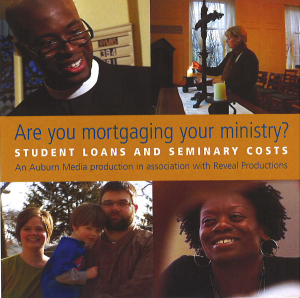
From the Publisher This 30 minute video introduces five recent seminary graduates, some of the financial challenges they faced and decisions they made. Two experienced seminary administrators also offer advice on how to manage finances while in school. The video, along with accompanying resources, including Financial Planning worksheets, can be used by schools to help students plan for how they will pay for their theological education. All materials, including this video, are free and can be downloaded. Students as well as school administrators are welcome to use the material provided on this site.
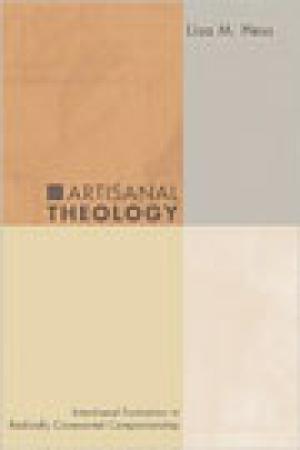
Paradox and surprise face those who pursue deeper spiritual practice, theological wisdom, and even a religious calling "into the ministry." Unbeknownst to incoming students, the pursuit of theological education in established institutions today furthers a faith that is recognizable in delight and compassion, even as it may just as easily deform it into a moral duty and autonomous professionalism so divisive in today's religious ecology. How may those drawn into ministry formation today receive its deep theological treasures and sustain a vibrant faith with a theologically expressive delight able to companion the suffering of self and others? (From the Publisher)
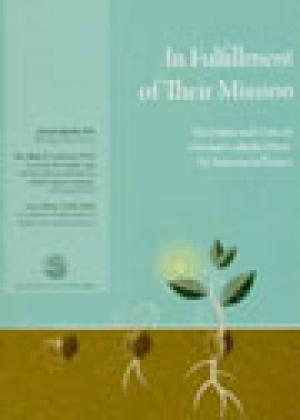
Project Overview Introduction Project Background and Methodology Project Panel Members The Nine Ministerial Duties The Matrix: Duties and Tasks of a Catholic Priest Rubric Key One - Celebrates Liturgy and Sacraments Two - Provides Pastoral Care and Spiritual Guidance Three - Teaches the Faith Four - Leads Parish Administration Five - Practices a Ministry of Presence with Parish Groups Six - Participates in the Life of the Diocesan Church Seven - Engages with Diverse Publics Eight - Engages in Professional Development Nine - Engages in Personal Development The Use of an Assessment Portfolio in Seminary Formation Sample Elements of a Seminarian Portfolio Appendix The Successful Priest - Skills and Knowledge The Successful Priest - Behaviors and Attributes Resources for Priests Defining the Current Context of the Ministry
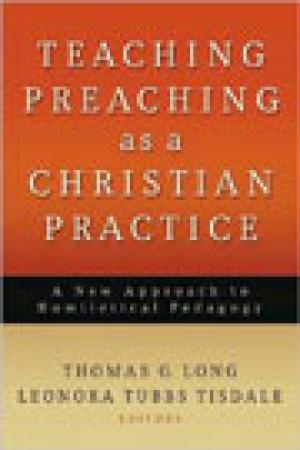
Preaching's most able practitioners gather in this book to call for a radical change in how Christian preaching is taught. Arguing that preaching is a living practice with a long tradition, an identifiable shape, and a broad set of norms and desired outcomes, these scholars propose that teachers initiate their students into the larger practice of preaching-the habits of mind, patterns of action, and ways of being that are integral to the ministry of preaching. The book concludes with designs for a basic preaching course and addresses the question of how preaching courses fit into the larger patterns of seminary curricula. (From the Publisher)
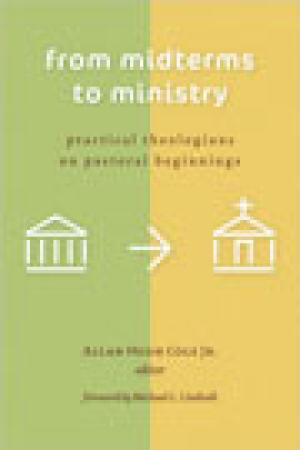
In this collection of essays, a seasoned group of ministers, scholars, and theological educators share reflections, born out of personal experience, on the transition from seminarian to minister. All the authors have worked with two assumptions. First, they acknowledge that the school experience, though related, is a different world from the ministry setting. Secondly, they point out that while these arenas share things in common they also differ in significant ways. The contributors speak in a very personal way to the ways these worlds operate under dissimilar sets of expectations and values, with different cultures and ways of life, and also with their own set of distinct challenges, objective, rewards, and focal points. Honest and full of wisdom, Midterms to Ministry will help students and ministers find help to travel on their own vocational path. Contributors: Wallace M. Alston, Ray S. Anderson, M. Craig Barnes, Elizabeth F. Caldwell, Allan Hugh Cole Jr., Pamela D. Couture, Kathy Dawson, Carrie Doehring, Michael Jinkins, L. Gregory Jones, Susan Pendleton Jones, James F. Kay, Cleophus J. LaRue, Thomas G. Long, Loren B. Mead, Bonnie J. Miller-McLemore, Earl F. Palmer, Stephanie Paulsell, Anthony B. Robinson, Carol L. Schnabel Schweitzer, Theodore J. Wardlaw, Traci C. West, William H. Willamon, J. Philip Wogaman, Karen Marie Yust (From the Publisher)